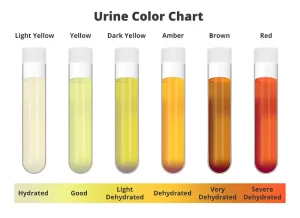Health
WHO Debuts First-Ever Traditional Medicine Summit

The World Health Organization initiated its inaugural traditional medicine summit on Thursday, focusing on gathering evidence and information to ensure the secure utilization of these treatments.
According to the UN health agency, traditional medicines serve as the primary choice for millions globally.
The discussions in India have convened policymakers and scholars with the goal of fostering political dedication and actions rooted in evidence.
Opening the summit, WHO Director-General Tedros Ghebreyesus emphasized the organization’s efforts in accumulating evidence and data to shape guidelines, standards, and regulations for the secure, cost-efficient, and fair application of traditional medicine.
While traditional medicine has the potential to bridge healthcare accessibility gaps, Tedros cautioned that its value hinges on proper, effective, and most importantly, safe application grounded in the latest scientific insights.
Concurrently, the WHO Traditional Medicine Global Summit is occurring alongside a meeting of G20 health ministers in the city of Gandhinagar, India.
“We need to face a very important real-life fact that traditional medicines are very widely used,” Nobel laureate and Chair of WHO Science Council Harold Varmus told the summit via video link.
“It is important to understand what ingredients are actually in traditional medicines, why they work in some cases… and importantly, we need to understand and identify which traditional medicines don’t work.”
Scheduled to become a recurring event, the summit’s inception follows the establishment of the WHO Global Centre for Traditional Medicine in India’s Gujarat state last year.
Despite being prevalent in certain regions, traditional medicines often encounter substantial criticism.
The UN health agency defines traditional medicine as accumulated knowledge, techniques, and practices employed over time for maintaining health and addressing physical and mental ailments.
However, numerous traditional remedies lack scientific validation, and environmentalists assert that the industry contributes to the illicit trade of endangered animals like tigers, rhinos, and pangolins, imperiling entire species.
Throughout the Covid-19 pandemic, the utilization of homemade remedies surged, including a green herbal concoction rooted in Artemisia, endorsed by Madagascar’s president as a remedy.
Although Artemisia has demonstrated effectiveness against malaria, its application against Covid-19 was met with skepticism from many medical professionals.
China boasts a rich legacy of traditional medicine, yet prominent European medical organizations have previously insisted that it adhere to the same regulatory scrutiny as conventional medical approaches.
John Reeder, WHO’s research head, emphasized that the progression of traditional medicine’s scientific understanding must adhere to the same rigorous benchmarks as other health disciplines, stating this in a release.
Out of WHO’s 194 member states, 170 have acknowledged their engagement with traditional and complementary medicine since 2018.
However, merely 124 of them have indicated the existence of laws or regulations governing the use of herbal medicines. Furthermore, only half of these states have established a national policy concerning such methods and medicines.
The WHO emphasized that while something being “natural” doesn’t inherently denote safety, and historical usage doesn’t guarantee effectiveness, rigorous scientific processes must be employed to provide substantial evidence.
Around 40 percent of currently approved pharmaceutical products are derived from natural sources, as per the WHO.
The organization cited notable medications, like aspirin, which originated from traditional medicine practices involving willow tree bark formulations.
Health
Cholera Outbreak In Sokoto Claims 25 Lives, Over 1,000 Infected
A cholera outbreak in Sokoto State has claimed the lives of at least 25 people, with 1,160 confirmed cases recorded in three local government areas.
The state Commissioner for Health, Dr. Asabe Balarabe, disclosed this during a press briefing on Monday.
She revealed that 15 patients are currently receiving treatment for the disease, which was confirmed through laboratory tests.
READ MORE: Tinubu Joins World Leaders In Renewed Fight Against Hunger, poverty
“Out of 1,160 people affected by the outbreak, 25 have succumbed to the disease,” Dr. Balarabe said.
In response, the state government has ramped up efforts to curtail the spread of the infection, which is caused by consuming contaminated water or food.
“The state rescue teams are collaborating with the government to manage and forestall further spread of the dreaded disease,” the commissioner stated.
To address the crisis, the government has ordered the immediate purchase and distribution of essential drugs free of charge to all 18 local government areas of the state.
Dr. Balarabe urged residents to maintain proper hygiene and seek medical attention immediately if they exhibit symptoms such as diarrhea and vomiting.
The outbreak has highlighted the need for improved sanitation and clean water access in affected communities, as health authorities work to contain the spread and prevent further fatalities.
Health
Don’t Ignore These Hidden Health Clues In Your Urine
Your body has subtle ways of communicating essential information about your health—and sometimes, one of the simplest clues is the color of your urine.
Urine, which is about 95% water, forms when your kidneys filter out waste and excess water from your blood. Normally ranging from light yellow to amber, it provides insights into your hydration and more.
Changes in urine color, smell, or frequency can serve as early indicators of potential health conditions.
While most color shifts are harmless and temporary, persistent changes could suggest a more significant issue.
“Tracking these signs can be a simple way to monitor hydration and potentially catch health issues early,” says Dr. Jenna Lewis, a nephrologist at Healthline Clinic.
Here’s a guide to what different urine colors might mean for your health:
Clear or Very Light Yellow
This typically shows you’re well-hydrated. While generally a positive sign, consistently clear urine could indicate overhydration, which may lower salt levels in your body.
Light to Medium Yellow
Often considered the “healthy” zone, this shade reflects good hydration without excess water intake.
Dark Yellow to Amber
A darker shade often indicates a need for more water. This is common in the morning or after exercise and can usually be resolved by drinking more fluids.
Orange
Dehydration may lead to orange urine, but other factors can also contribute. High levels of beta-carotene (found in foods like carrots) or certain medications can turn urine orange.
Persistent orange urine might signal liver or bile duct issues, so consult a doctor if it persists.
Pink or Red
While foods like beets or berries can cause pinkish urine, this color can also indicate the presence of blood, possibly signaling kidney problems, infections, or kidney stones. If diet isn’t the cause, seek medical advice.
Brown or Cola-Colored
This shade may suggest dehydration or, in some cases, a more severe issue. Brown urine can indicate liver or kidney problems, or a condition called rhabdomyolysis, where muscle tissue breaks down. Persistent brown urine warrants a visit to the doctor.
Blue or Green
Rarely, certain medications, dyes, or health conditions can produce blue or green urine. While often harmless, persistent blue or green urine should be evaluated by a healthcare provider.
Cloudy or Milky
Cloudy urine may indicate an infection or excess minerals. It could be a sign of a urinary tract infection, kidney stones, or mild dehydration. Sometimes, excess proteins or fats may also cause this cloudiness.
Most changes in urine color are temporary, especially when related to hydration, diet, or harmless compounds. However, experts agree that if unusual colors or symptoms persist, a consultation with a healthcare provider is wise.
“Listening to your body’s signals, even through something as simple as urine color, can offer valuable insights into your overall health,” adds Dr. Lewis.
By keeping an eye on these colors, you can stay on top of hydration and potentially catch health issues early.
Health
JUST IN: JOHESU Launches Nationwide Strike Over Unresolved Demands
Members of the Joint Health Sector Unions and Assembly of Health Care Professionals (JOHESU) have announced a seven-day warning strike set to begin at midnight on Friday.
This action follows a 15-day notice of industrial action issued to the Federal Government.
READ MORE:Russia Battles Inflation, Raises Key Interest Rate To 21%
Addressing journalists in Abuja, JOHESU’s national chairman, Kabiru Minjibir, outlined the union’s primary demands, emphasizing a need for immediate action to address ongoing concerns affecting healthcare workers across the nation.
Key demands include the urgent implementation of the consolidated health salary structure and the payment of a 25 percent review of arrears from June to December 2023.
The union is also calling for an upward review of the retirement age for healthcare workers, a tax waiver on healthcare workers’ allowances, and the immediate disbursement of COVID-19 inducement hazard allowances.
Minjibir urged all union members nationwide to adhere to the strike directive, underscoring that compliance would be essential in pushing for their demands.
Details shortly………….





















